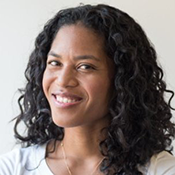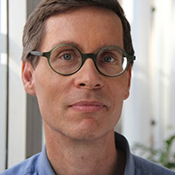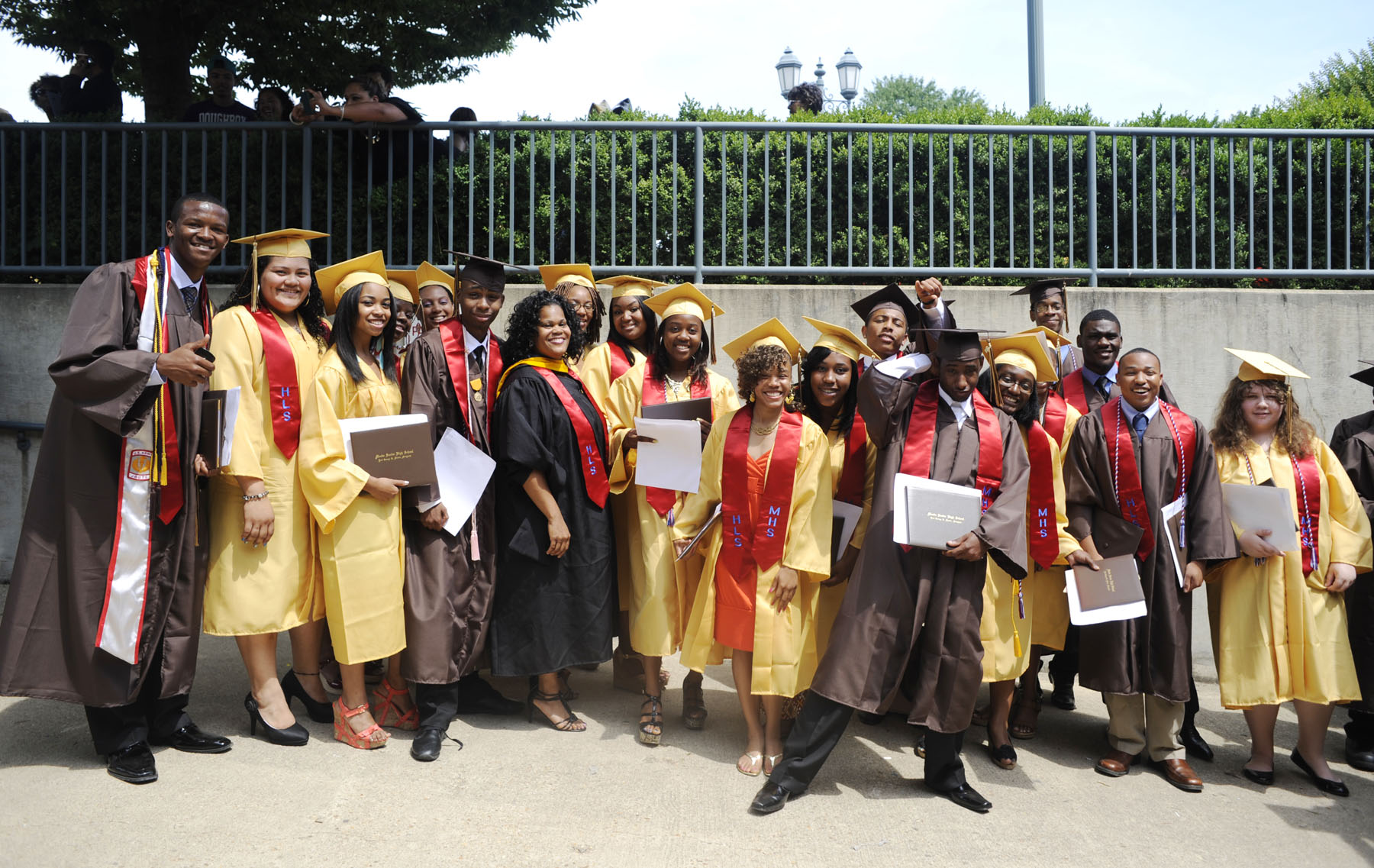By Christina Lewis Halpern and Daniel Rabuzzi
Every June, hundreds of thousands of young people proudly accept their degrees at ceremonies attended by tearful, proud family members.
How do you like this as a piece of advice for a high schooler? We don’t want you to dream of getting your college degree.
I bet you think we’re crazy.
But we’re not. We want you—our youth—to dream bigger than your college degree, see college for what it is: necessary but not always sufficient for success in the 21st-century economy. To be sure, we believe in the power of a college degree, which is proven to greatly improve a host of life outcomes including earning power. As the Hamilton Project at Brookings finds, a college graduate today is almost 20 percentage points more likely to be employed than a high school graduate, and someone graduating college in 2014 has an inflation-adjusted expected lifetime increase in earnings relative to someone with only a high school diploma of c. $450,000.
We want you—our youth—to dream bigger than your college degree, see college for what it is: necessary but not always sufficient for success in the 21st-century economy.
Given these statistics, who would counsel a young person not to go to college? Not us. But as the leaders of non-profit organizations helping young people learn to code and to create technology with purpose, we view a degree as a means to an end—it should not be an end unto itself.
Call it the ladder mindset. Get good grades in high school so as to matriculate at a good college so as to become a lawyer or a doctor or an engineer and get a good job at a big company so as to earn a good salary so as to buy a nice house and then retire… You might call this the American Dream, but in fact ladder thinking can be a damaging way of viewing the world. Rather than encouraging youth to explore their own potential, it pushes students to conform to external societal expectations.
Ladder thinking is attractive because it offers the illusion of safety. Students, particularly youth from low-income or under-represented groups, want to avoid risk and thus are more likely to hold on to and follow a preset route to success.
Ladder thinking may be all the more toxic because increasingly the “preset” route to success has hidden costs and pitfalls‚this route may actually be the most risky. Technology and the pace of innovation are upending professions that had once been “sure” things—even law schools are graduating students with significant debt and no jobs. And on the other hand, many occupations now require STEM knowledge that too many of our high school and college graduates lack—for instance, a recent Deloitte Consulting/Manufacturing Institute survey suggests that 6 out of 10 open skilled production positions in the United States cannot be filled due to the STEM skills gap.
What if instead of encouraging our students to climb someone else’s pre-set definition of a ladder, we encourage them to build and ascend their own ladder?
The problem with dreaming of a college degree is that it’s not really a dream, it’s an award. An external marker that is intended to represent a high level of education. But the degree has no value if a student achieved it only for the purpose of achieving it (and receiving the resulting acclaim from friends and family) and has no conception of what he wants in life other than to hit more milestones.
We want our youth to dream of real things that they are pursuing because it makes them feel contentment. Let’s encourage them to dream of traveling the world; of changing another person’s life; of finding work where they actually want to be friends with their colleagues? What if we encourage them to dream of learning a skill that helps people in their communities?
What if instead of encouraging our students to climb someone else’s pre-set definition of a ladder, we encourage them to build and ascend their own ladder?
To create and climb a ladder of one’s own requires diligence and thoughtfulness. But it also requires comfort with ambiguity—a critical entrepreneurial skill that is sorely lacking in many supposedly “high-achieving” youth and adults today. Let’s change our education system so that it fosters creativity and freedom in our youth. Let’s teach our teachers to educate our young people to be explorers who are seeking knowledge for their own purposes.
When you teach a youth to start celebrating failure as a means to explore his or her own ultimate success the results can be astounding—by choosing to take risk they themselves identify, they truly begin to think for themselves and unlock their individual character. Risk-taking on one’s own terms is emancipatory, empowering, and gives rise to empathy.
Empathy is the quality we argue is most necessary in education and in one’s career thereafter—yet there are no degrees given in “empathy,” no rungs on traditional ladders labeled “empathetic.” But there could be, as young people in our programs have forcefully reminded us.
An All Star Code student named Austin stunned Christina the other day when he said:
“I like coding because I like the freedom it provides. I see now that the world is a much more free place than I ever realized. And I want to help other people see how free the world can be for them.”
A Mouse alum named Hiram says:
“In the future, I am going to do something dramatically good for everyone. I want to design something in the future—that everyone will use, something that will connect people and improve their lives.”
We want more of our youth to be like Hiram and Austin, Let’s encourage them to step off existing ladders, so they can build their own—and climb towards and with a community they choose and help make. Stepping off the traditional ladder can be bumpy. Students may stumble and get lost before they create their own ladder. Let’s give them the time and tools to do this—for their sake and for ours.
All Star Code Summer Intensive
 The application for All Star Code’s Summer Intensive is now live! This unique, six-week program teaches young men of color the skills they’ll need to become a tech pioneer. They’ll design websites and apps, engage with top tech professionals, and visit the hottest tech offices in NYC. Visit AllStarCode.org/Apply for more info.
The application for All Star Code’s Summer Intensive is now live! This unique, six-week program teaches young men of color the skills they’ll need to become a tech pioneer. They’ll design websites and apps, engage with top tech professionals, and visit the hottest tech offices in NYC. Visit AllStarCode.org/Apply for more info.
Mouse Maker Saturday
 Join Mouse on Saturday, April 16th for our first Maker Saturday, a day for middle and high school students to create and make with technology. Come create with coders, crafters, 3D designers, whiteboard artists, gamers, and makers from across NYC. This is the perfect place to try code, building circuits, or 3D design for the first time! Learn more and sign up.
Join Mouse on Saturday, April 16th for our first Maker Saturday, a day for middle and high school students to create and make with technology. Come create with coders, crafters, 3D designers, whiteboard artists, gamers, and makers from across NYC. This is the perfect place to try code, building circuits, or 3D design for the first time! Learn more and sign up.
About The Authors
 Christina Lewis Halpern is a social entrepreneur and award-winning journalist who is the Founder and Executive Director of All Star Code, a unique, fast-growing non-profit education organization that attracts, prepares and places more young men of color in the technology sector. The White House honored Christina as a 2014 Champion of Change for STEM Access. She is also a Jet Magazine top 40 under 40 and The Root’s 17 women in STEM you should know. She has spoken at NY Ideas, Harvard Law School, The Atlantic Forum in Education, J.P. Morgan, the Wealth and Giving Forum, among other places. She is also chair of the Finance and Investment Committee of the Reginald F. Lewis Foundation and has led million-dollar fundraising campaigns for her alma mater, Harvard College. Prior to founding All Star Code, Christina was an award-winning journalist, including five years as a staff writer for the Wall Street Journal. Her work has been profiled in Fortune, Fast Company, Domino, and Vanity Fair and she has been published in The New York Times Magazine and other publications. She graduated from Harvard College and lives in New York City with her husband, two children, and dog.
Christina Lewis Halpern is a social entrepreneur and award-winning journalist who is the Founder and Executive Director of All Star Code, a unique, fast-growing non-profit education organization that attracts, prepares and places more young men of color in the technology sector. The White House honored Christina as a 2014 Champion of Change for STEM Access. She is also a Jet Magazine top 40 under 40 and The Root’s 17 women in STEM you should know. She has spoken at NY Ideas, Harvard Law School, The Atlantic Forum in Education, J.P. Morgan, the Wealth and Giving Forum, among other places. She is also chair of the Finance and Investment Committee of the Reginald F. Lewis Foundation and has led million-dollar fundraising campaigns for her alma mater, Harvard College. Prior to founding All Star Code, Christina was an award-winning journalist, including five years as a staff writer for the Wall Street Journal. Her work has been profiled in Fortune, Fast Company, Domino, and Vanity Fair and she has been published in The New York Times Magazine and other publications. She graduated from Harvard College and lives in New York City with her husband, two children, and dog.
 Daniel A. Rabuzzi joined Mouse in February 2013 as Executive Director. A dedicated leader, Daniel has devoted much of his professional career to improving the lives of underserved youth and has a track record of successful expansion and innovation. Prior to joining Mouse, he served as Senior Director, Operations & Strategy for Year Up New York, as well as National Program Director for The Network for Teaching Entrepreneurship. Daniel was also CEO of the Kentucky Virtual Campus, one of the first public sector online schools created to bring web-based services to less advantaged citizens. He also served as a vice president at Manufacturers Hanover Trust Company. Daniel has had two novels published, as well as over 30 short stories, poems, essays and scholarly articles. Daniel received his B.A. from Harvard University, M.A. from The Fletcher School at Tufts University, and M.A. and Ph. D. in History from Johns Hopkins University. He was a research fellow at the University of Oslo in Norway and the University of Bielefeld in Germany and studied at CIEF/University of Bourgogne in France. Daniel lives with his wife, the artist Deborah Mills, in New York City.
Daniel A. Rabuzzi joined Mouse in February 2013 as Executive Director. A dedicated leader, Daniel has devoted much of his professional career to improving the lives of underserved youth and has a track record of successful expansion and innovation. Prior to joining Mouse, he served as Senior Director, Operations & Strategy for Year Up New York, as well as National Program Director for The Network for Teaching Entrepreneurship. Daniel was also CEO of the Kentucky Virtual Campus, one of the first public sector online schools created to bring web-based services to less advantaged citizens. He also served as a vice president at Manufacturers Hanover Trust Company. Daniel has had two novels published, as well as over 30 short stories, poems, essays and scholarly articles. Daniel received his B.A. from Harvard University, M.A. from The Fletcher School at Tufts University, and M.A. and Ph. D. in History from Johns Hopkins University. He was a research fellow at the University of Oslo in Norway and the University of Bielefeld in Germany and studied at CIEF/University of Bourgogne in France. Daniel lives with his wife, the artist Deborah Mills, in New York City.
